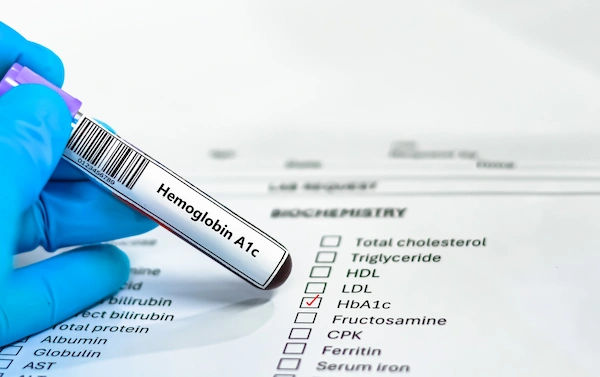How to Reduce Sugar Levels in Pregnancy?
Discover natural home remedies to manage blood sugar levels during pregnancy, including diet tips, exercise, and herbal supplements. Learn the tips for a healthy pregnancy and reduce gestational diabetes risks.

Written by
Last updated on 3rd Jul, 2025
Gestational diabetes mellitus (GDM) is a condition that impacts pregnant individuals, resulting in elevated blood sugar levels. This happens when the body either becomes resistant to insulin or does not produce enough of it to manage glucose levels effectively. Now, it's crucial to control blood sugar levels during pregnancy for the health of both the mother and the baby.
If left unmanaged, gestational diabetes can lead to complications such as preterm birth, high birth weight, and a greater likelihood of developing type 2 diabetes in the future. This article covers home remedies for reducing sugar levels in pregnancy, herbal and natural supplements, and more.
Effects of High Blood Sugar on Pregnancy
High blood sugar during pregnancy raises the chances of complications like preeclampsia, which involves high blood pressure and potential damage to organs. Furthermore, if blood sugar levels are not managed, there is a greater risk of needing a cesarean section due to excessive fetal growth. In this regard:
Mothers who experience gestational diabetes are also at a higher risk of developing type 2 diabetes after giving birth.
Elevated sugar levels in the bloodstream can cause macrosomia, a condition where the baby grows larger than average, complicating the delivery process.
This situation can lead to an increased risk of birth injuries and the necessity for medical interventions during labour.
Babies born to mothers with high blood sugar may face low blood sugar levels after birth, which can result in issues like breathing difficulties and jaundice.
These children are also more likely to develop obesity and diabetes as they grow older.
Risk Factors of Gestational Diabetes
There are several factors that can increase the risk of developing gestational diabetes:
Women who have a family history of diabetes, are obese, or have had previous pregnancies affected by GDM are more likely to be at risk.
Age is another important factor, as those over 25 tend to be more vulnerable to this condition.
Ethnicity, polycystic ovary syndrome (PCOS), and a lack of physical activity can further elevate the risk.
Gestational diabetes often does not show clear symptoms, which is why regular screening is crucial. However, some women might notice symptoms such as increased thirst, frequent urination, fatigue, and blurred vision.
Home Remedies to Manage Blood Sugar Levels
Maintaining a balanced diet is key to effectively managing blood sugar levels:
Incorporating fibre-rich foods like whole grains, legumes, and vegetables can help control glucose by slowing down sugar absorption.
Lean proteins such as chicken, fish, and tofu contribute to stable blood sugar levels by minimising spikes.
Healthy fats found in avocados, nuts, and olive oil also play a role in supporting insulin function.
It's advisable to choose foods with a low glycemic index (GI), including quinoa, lentils, and non-starchy vegetables, to avoid sudden fluctuations in sugar levels.
Steering clear of refined sugars, processed foods, and sugary drinks is crucial for keeping glucose levels steady.
Eating smaller, more frequent meals throughout the day can help prevent drastic swings in blood sugar.
Staying active is another important aspect of blood sugar management:
Participating in low-impact exercises like walking, prenatal yoga, and swimming can improve insulin sensitivity, leading to better glucose utilisation.
Exercise can help mitigate excessive weight gain, which is a risk factor for gestational diabetes.
Furthermore, it's wise to consult a healthcare provider before beginning any new exercise program to ensure it's safe and effective.
Herbal and Natural Supplements to Manage Blood Sugar Levels
Certain herbs can aid in blood sugar regulation when used in moderation:
Cinnamon has been found to enhance insulin sensitivity.
Fenugreek seeds can help lower glucose levels.
Ginger may play a role in reducing insulin resistance.
However, it's crucial to speak with a healthcare provider before adding herbal remedies to a prenatal diet. Natural supplements should be used to complement a healthy diet, not as a substitute for medical treatments. Furthermore:
Incorporating herbs into everyday meals, like sprinkling cinnamon on oatmeal or adding fenugreek to soups, can offer potential benefits without over-relying on supplements.
It's also essential to maintain portion control and ensure a varied diet for effective blood sugar management.
Monitoring and Tracking Blood Sugar Levels
Self-monitoring of blood glucose (SMBG) is essential for tracking sugar levels throughout the day. In this regard:
Home glucose meters give immediate readings, enabling individuals to make important dietary and lifestyle changes.
Checking blood sugar levels before and after meals provides valuable information on how various foods impact glucose levels.\
Consistent monitoring helps to recognise patterns and triggers that lead to fluctuations in blood sugar.
Keeping a log of readings allows healthcare providers to modify treatment plans when necessary. This monitoring also confirms that dietary and lifestyle changes are successfully helping to maintain stable blood sugar levels.
Tips for a Healthy Pregnancy
Stress can lead to higher blood sugar levels by causing hormonal imbalances. To negate this, one can consider the following tips:
Using relaxation techniques like deep breathing, meditation, and prenatal massages can help reduce stress.
Engaging in hobbies and spending time with supportive friends and family enhances emotional well-being.
Regular prenatal visits are crucial for keeping track of both the mother's and baby's health. During these appointments, healthcare providers check blood sugar levels, monitor fetal growth, and evaluate the overall progress of the pregnancy.
Identifying complications early allows for prompt interventions and improved outcomes.
Potential Complications of GDM if Left Unmanaged
Following are the potential complications which one can face due to uncontrolled GDM:
Uncontrolled gestational diabetes raises the chances of complications like high blood pressure, preterm labour, and the need for cesarean delivery.
Infants may face issues such as low blood sugar, breathing problems, or a greater risk of obesity, diabetes and metabolic disorders as they grow older.
Women who have gestational diabetes are more likely to develop type 2 diabetes after pregnancy.
Adopting a healthy lifestyle after giving birth can help lower this risk.
Conclusion
Keeping blood sugar levels in check during pregnancy involves making dietary changes, staying active, and monitoring levels regularly. Adding home remedies like a balanced diet, herbal supplements, and stress management techniques can enhance overall health.
Regular medical check-ups are essential for a healthy pregnancy and minimising potential complications. Taking a holistic approach to managing gestational diabetes is beneficial for both the mother and the baby, promoting better long-term health outcomes.
Consult Top Obstetrics and Gynaecologist
Consult Top Obstetrics and Gynaecologist

Dr. Ashish Kale
Obstetrician and Gynaecologist
19 Years • MBBS, MD (OBG), DNB, MNAMS, Diploma in Endopelvic Surgery, Fellowship in Embryology, Fellowship in ART.
Pune
Apollo Hospitals Pune, Pune

Dr. Asawari Kesari Kapoor
Obstetrician and Gynaecologist
23 Years • M.B.B.S, D.G.O(Mumbai) ,D.G.O (C.P.S), D.N.B (OBGY)
Delhi
Apollo Hospitals Indraprastha, Delhi
(25+ Patients)

Dr. Korimilli Nisha
Obstetrician and Gynaecologist
10 Years • MBBS, MS (Obstetrics and Gynaecology)
Bansdroni
Siddhita Healthcare., Bansdroni

Dr. Mona Yadav
Obstetrician and Gynaecologist
19 Years • MBBS, MD (Obstetrics & Gynaecology)
Dombivli
Nulife multispeciality, Dombivli

Dr. Somdutta Basu
Obstetrician and Gynaecologist
7 Years • MBBS, MS Obstetrics & Gynaecology
Bansdroni
Siddhita Healthcare., Bansdroni



